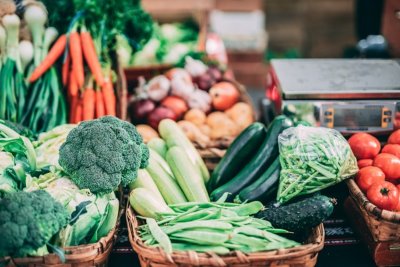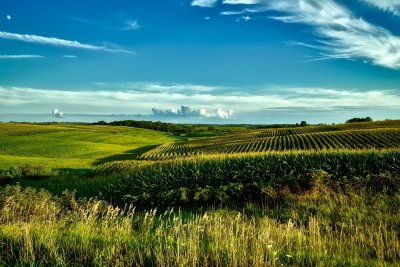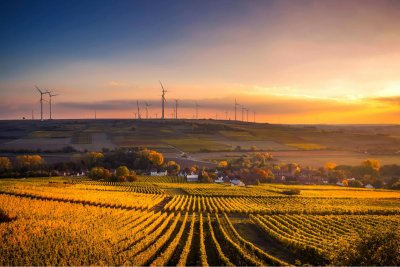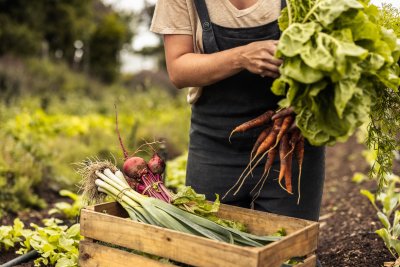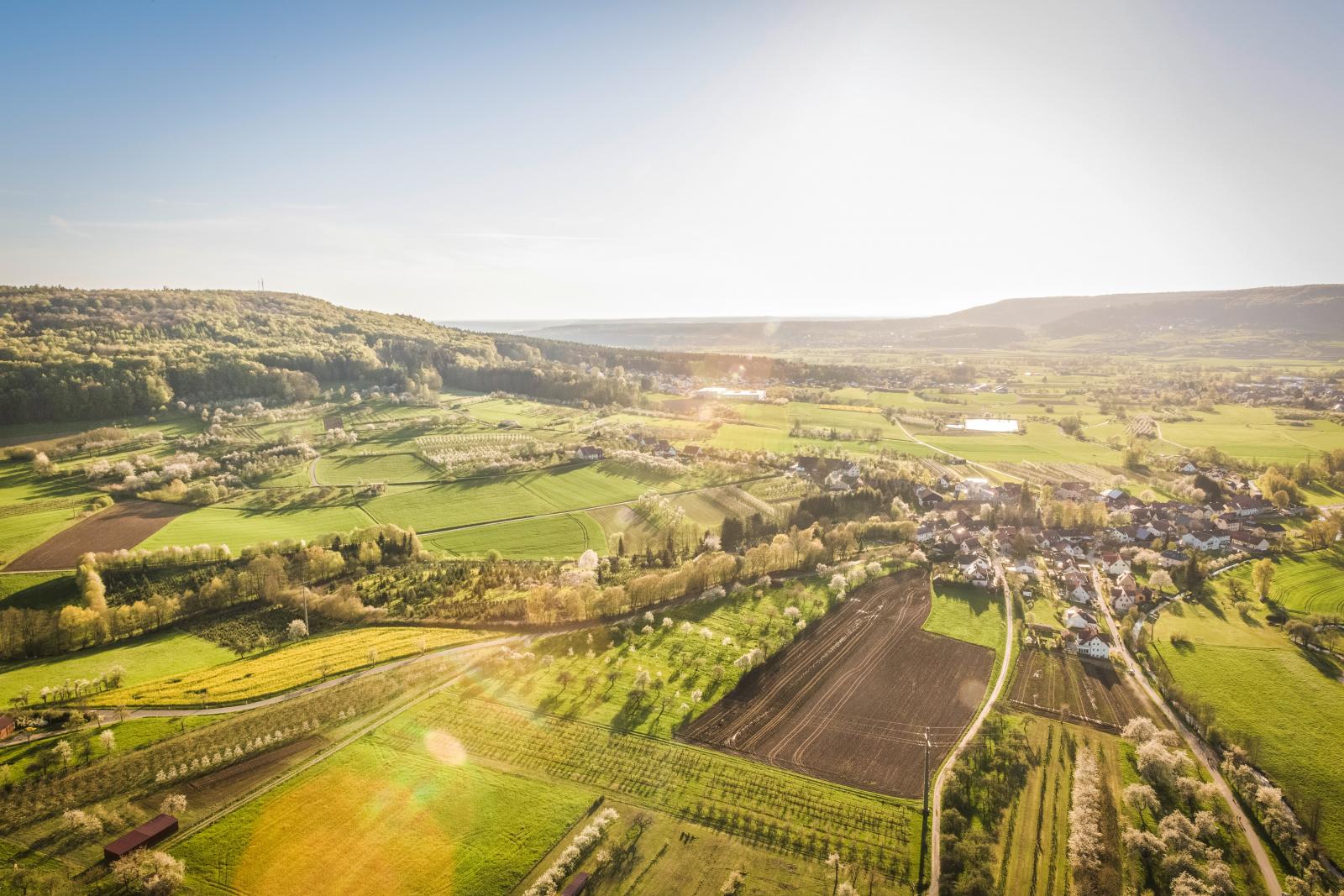 credit - pexels
credit - pexels
Ten questions you may have on the new Agriculture Bill
Three politically charged words sum up the problem of trying to assess whether the draft Agriculture Bill published last week will work: budget, duties and trade.
Will there be a budget to do what it needs to deliver? Will any of the powers in the Bill mean anything if they do not need to be taken up? And how does any of this matter if we end up with a poor or ‘no deal’ with the EU and deals with other counties that undermine standards? All these are huge unknowns yet they may have deep impacts on whether the Bill delivers a better farming future.
With those fundamental uncertainties in mind, and the fact that the Bill has its second reading on 10 October, the following are ten key questions about the Bill and our attempts to answer them:*
1. Will it help farmers survive?
As noted we have lost thousands of farms over the past decade as unfair supply chains, poor policy and lack of adequate advice and support have taken their toll. The new Bill could ensure that we don’t lose thousands more and instead let them thrive and deliver lots of good food and a healthy environment. But will it?
- Without a decent long term budget to pay for all the new types of financial assistance as ‘payments for public goods’ and sustainable productivity, no.
- The Government has said it wants a transition period of seven years from 2020, during which they will make lump sum or annual ‘delinked’ payments to farmers. This could help farmers invest, diversify, retire. Or buy a boat. With no safeguards the land could be bought up to create vast, American style ‘titan farms’.
- How farmers in devolved nations fare will depend very much on the national policies agreed but also the budgets and trade policy and deals.
- Farmers crucially need a decent training and advisory service for business planning as well as environment, animal welfare and so on… but currently it’s not there.
2. Will it ensure farmers are better treated by the food industry?
As we said at the time the Ministerial decision not to extend the work of the Groceries Code Adjudicator was a bad decision. It appears this has been accepted.
- The Bill gives the government powers to go further in helping farmers via new ‘fair dealing measures’ including regulating those who purchase direct from farmers and growers. If implemented this would mean considerable new regulation, new codes and enforcement with powers to impose civil penalties on supply chains that do not adhere to new Codes of practice. This is good.
- But the Bill needs to go further and apply this to all sectors and cover all supply chains.
- Producers ‘outside the UK’ are included in this clause which is good.
- Efforts to deliver transparency and collecting data across the supply chains will be useful too but must not add undue burden and risk to farmers and growers. The setting up of sector producer organisations to boost marketing capacity will also help but again is not enough.
3. Will it increase, decrease or have little effect on what food is produced here and on food prices?
The big questions of food security – can we feed ourselves better as global supplies become increasingly unstable - and will we be paying more for our food? Some suggest the Bill could be harmful but we could get it right:
- Our ability to feed ourselves may depend on whether the new payments and support (including training) allow farmers to still grow food, but do it more sustainably and with better protection for nature and resources like soil and water. The current Bill merges the two aims (as long as the 'productivity' financial assistance strand is underpinned by sustainability objectives...) so maybe it will work, but the final scheme needs to be well designed so we can produce the ‘right food in the right way’.
- There is a risk that the ‘delinked’ payments (and new trade arrangements) mean some land is abandoned or filled with yurts. It is not clear how significant this would be and building in a regular review of food availability would allow emerging issues to be seen and addressed. And there needs to be a clear set of rules for how the money can be used.
- If food production is reduced or stopped for specific nature or ecosystem goals this may well make sense on a local basis. Less but higher quality food may be produced in areas like the uplands as land managers reduce livestock numbers and grow trees or other crops. As these are not huge producers and as diets are already changing this may well work.
- In the long term we need to change what we eat, waste less and what we grow should reflect these better diets (less sugar, more fruit plans, less and better meat). We need to take less of the global land mass to feed livestock intensively. The Bill does not yet deliver much of that vision.
- The price of food depends on so many factors, not least how much profit the food industry demands, and is likely to be affected by the strength of the pound and trade deals more than by this Bill.
- Climate change will also affect food availability and prices so we need to tackle all emissions as soon as possible.
4. Will it drive new entrants in and help with farm succession?
- Existing EU aid for young farmers is being removed but the bill and policy documents suggest new measures will help provide new land and support for new entrants. It all depends on budgets and priority and whether there are rules to ensure farmers in receipt of 'delinked payment' and leaving farming allow new entrants in. We want safeguards to ensure land and other needs are met.
- The Defra Bill policy statement (but not the Bill sadly) suggests a role for Council (cif – should be County) Farms. These are farms owned by councils and could offer real opportunities of land for new farmers to start a foundation business, based on good standards, and gain the experience they need to progress onto a larger unit. This and other measures, such as capital grants, training and planning rules, and measures to ensure available and affordable land will be crucial.
5. Will it help attract farm workers and protect farm jobs?
- There is little in the Bill to support better wages and conditions for agriculture workers. This leaves 140k English Farm workers out in the cold and some subject to on-going unfair wages and treatment. We will be lobbying for that. Agriculture could and should be a great career choice. On boosting labour, the recently announced scheme to allow some seasonal workers is inadequate.
- How far the Bill supports rural development depends heavily on whether it helps maintain farm businesses and jobs. This will be determined by how many of the powers are actually used, how much budget is delivered to achieve the objectives and also the impact of the final deal with Europe and other countries. There is reference to financial assistance for productivity but little in the Bill to ensure that this will boost rural infrastructure or the related farm economy.
6. Will nature thrive and ecosystems be protected?
Despite good practice by farmers and some useful government measures, numerous studies show that nature on farmland has not done well over the past decades. Conservation groups suggest the Bill is a big step forward and it is:
- The Bill contains new powers to pay farmers for delivering public ‘goods’ like managed and enhanced nature. So yes there is real potential there. But it will depend on adequate budget to pay farmers and adequate advice and training.
- But with no targets to protect nature and tackle harmful practices this will be hard to measure. In its next steps, the Government will need to create targets or explicitly link this bill to the 25 Year Environment plan and environment Bill which do contain targets.
- There is a huge issue of enforcement and lack of capacity in the environment agencies to oversee the changes and provide the advice, training and regulatory enforcement required. We need to boost the capacity of government agencies like Natural England and the Environment Agency and ensure a strong regulatory baseline via the Environment Bill.
7. Can it cut farm and food-based greenhouse gas emissions?
This is crucial as the agriculture industry has achieved few reductions in climate change emissions in recent years.
- There are powers in the Bill to provide financial assistance for climate mitigation and adaptation which is good. But if the allocation is low and is mostly given for adaptation it may not deliver the cuts needed.
- Cutting food-based emissions would mean wasting less food, and eating less high carbon foods like meat and dairy. There is nothing in the Bill to help on this. In fact, the Bill is remarkably light on any mention of food.
8. Will it help the health of the nation?
It makes no sense for farm policy to hinder and not help efforts to reduce food related diseases such as obesity, food-borne disease and other health-related aspects of food production.
- The Bill has some goals such as environmental hazards (eg air pollution) and animal and plant health and measures to increase access to the Countryside.
- Yet it really should have solid public health goals such as supporting farm systems which replace antibiotic use with good animal husbandry and management.
- There is no mention of the potential impact on our diets of boosting the production and marketing of fruit and vegetables. There are measures to support horticulture but no target for increasing supply and sustainability.
- The UK is one of the fattest nations in Europe. We need to reduce our sugar consumption to reduce obesity and other costly diseases, so the Bill should have measures to support farmers out of sugar beet production.
- Finance for more public access is in the Bill and is a welcome element if adequately funded.
9. Will it help animal welfare?
Sustain member Compassion in World Farming is pleased that the Bill is recognising the need for subsidies for public goods, including for animal welfare payments.
- This Bill should introduce substantial improvements and changes to farming systems, and finance could now be used to really help farmers where the market can’t, or can only partially, move to higher welfare – some capital costs should be provided to farmers who wish to transition to higher welfare systems.
- The Agriculture Bill would have been an opportunity to ban live exports and to introduce mandatory method of production labelling, along the same lines of the labelling of eggs.
10. Will it cost more to the taxpayer?
- The current budget of around £3 billion is likely to be cut significantly. The Agencies that support farm policy and work to protect the environment, nature and food safety have been heavily cut over the past decade.
- In reality the social, health and environmental costs of failing to nurture sustainable, healthy, safe farming could be significant for the state. We already have significant healthcare and clean-up costs.
Comments to Vicki Hird Vicki@sustainweb.org @vickihird
*There are major gaps in this quick note including on devolved nations and on trade impacts in particular.
Sustainable Farming Campaign: Sustain encourages integration of sustainable food and farming into local, regional and national government policies.
Sustain
The Green House
244-254 Cambridge Heath Road
London E2 9DA
020 3559 6777
sustain@sustainweb.org
Sustain advocates food and agriculture policies and practices that enhance the health and welfare of people and animals, improve the working and living environment, promote equity and enrich society and culture.
© Sustain 2024
Registered charity (no. 1018643)
Data privacy & cookies
